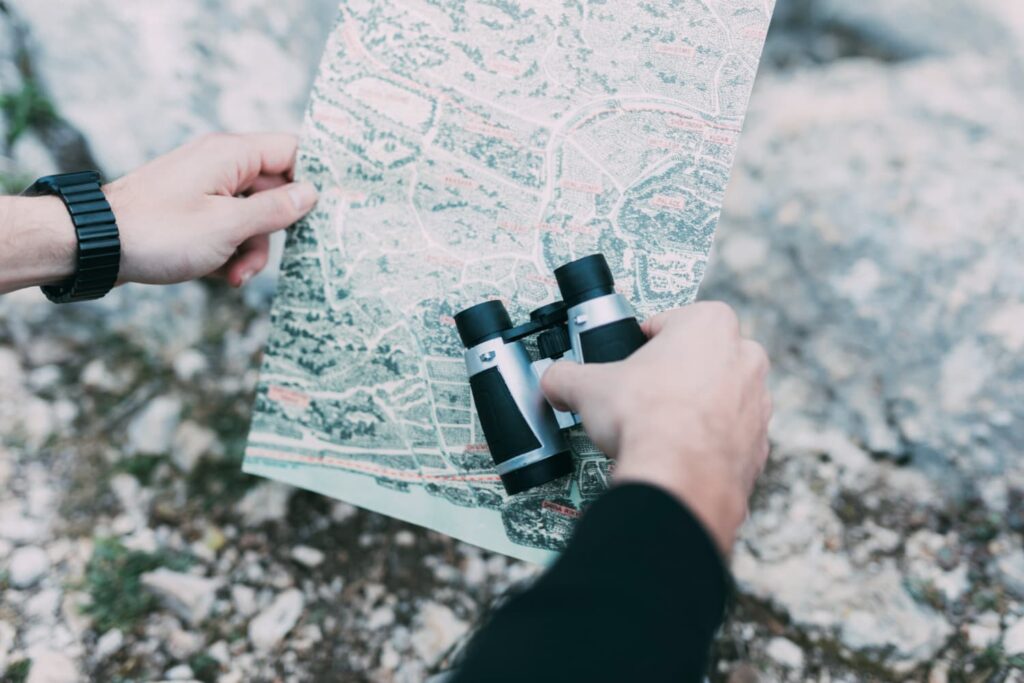Orienteering is a popular sport that many take to learn how to navigate through unfamiliar terrain using only their skills. Another reason why many like it is that they have a chance to make their minds work 100 times faster: creating a route, predicting as many future obstacles as possible, and making quick decisions in high-pressure situations.
This intense focus is important if you want to achieve success in other areas of life, be it career, personal goals, or hobbies. Maintaining focus in everyday tasks leads to fewer mistakes and better results, which can later become potential for growth as a person.
The Importance of Focus in Orienteering
Orienteering requires incredible concentration since players navigate a completely unfamiliar place using only a map and compass. Every move or route choice requires players to make constant decisions. A single loss of focus may lead to mistakes, disorientation, or even loss of race.
Careful Navigation
Each orienteer has to be able to transcribe the map continuously throughout the race, estimate distances, and make decisions along the way. It takes a lot of concentration to walk through forests, hills, and rough terrain while keeping the right path and not getting lost.
Orienteers should also trust their capabilities, especially when the visibility is poor or the landscape is difficult, since one wrong turn or misread bearing can complicate the way back. Such situations and the need to be constantly focused teach new orienteers to handle complicated actions effectively. These skills will surely be useful in professional contexts where precision and attention to detail are vital keys to success.
Work with Distractions
Distractions are everywhere, but orienteers are taught to ignore them, including weather conditions, fatigue, or the pressure of competition. This skill is vital, as they need to always be focused on the route; one simple distraction can lead to mistakes in planning and, thus, trip failure. This mental focus on one goal is an incredibly useful skill in everyday life, as it helps push through high-stress situations and achieve results faster and with better outcomes.
How to Apply Orienteering Focus to Life and Work
When you master focus during orienteering, you can actually use it in other aspects of life. Apart from achieving goals or succeeding in business, there are many more. Here are situations where you can use this valuable skill:
- Break down complex tasks. In orienteering, you often have to break the route into several stops to make it more effective. The same is true when you have a big complex task. By doing this, you will be able to improve your performance and thus finish with better results.
- Adapt to challenges. Orienteers are taught to overcome challenges, no matter how difficult they are. These tactics might be helpful in everyday and professional life.
- Block out distractions. Orienteers learn to pay attention to instructions, such as those related to weather or fatigue. If you use this skill in everyday life, you will be able to maintain focus even if there are pressures or stress.
- Stay calm under pressure. This skill allows you to keep a cool head and think rationally, even if everyone around you is in a panic.
To sum up, learning about these skills and trying to implement them in everyday life can be beneficial. Keeping a cool head and adapting to challenges will help you make smart decisions that are not affected by stress or panic. Also, breaking a complex task into smaller subtasks is a great way to make gradual progress with little to no worry.
Focus on High-Stakes Scenarios
Just as in competitive orienteering, staying focused during high-pressure moments can be a game-changing factor in your career and business. The ability to block distractions and maintain sharp concentration during critical presentations or decision-making can make the difference between success and failure.
Just like orienteers who have to make quick decisions, athletes and gamblers face similar pressures. From a decisive move in a sporting event to the timing of raising the stakes in a gamble, tactical decisions need calmness. It is all about how a person should balance acting and making calculated decisions in any competition. Focus and adaptability make a difference in these environments.
Final Thoughts
Key lessons from orienteering—focus, flexibility, and decision-making under pressure—can be applied to personal and professional life. Whether you decide to use these tactics in your daily practices or as you climb the career ladder, make sure you continue practicing and developing your skills. This way, you will be able to keep your mind focused on tasks, act smart during panic, and complete tasks more efficiently.
